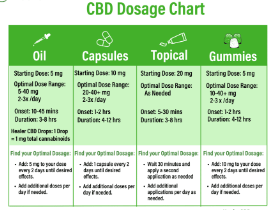CBD oil has gained significant popularity in recent years due to its potential therapeutic benefits. One area where it has shown promise is in improving sleep quality. Many individuals struggle with sleep disorders or have trouble falling asleep, and CBD oil has been touted as a natural remedy for these issues.
However, determining the right dosage of CBD oil for sleep can be challenging. This article aims to provide objective and evidence-based information on finding the best dosage of CBD oil for improved sleep.
Sleep is an essential aspect of our overall well-being, and lack of proper sleep can have detrimental effects on our physical and mental health. With the increasing interest in alternative remedies, many people are turning to CBD oil as a potential solution for their sleep problems.
However, there is no one-size-fits-all approach when it comes to dosing CBD oil for sleep. Factors such as body weight, metabolism, and individual sensitivity play a role in determining the optimal dosage. This article will explore various factors to consider when determining the right dosage of CBD oil for sleep and provide tips on how to find the ideal dose that works best for each individual’s unique needs.
Understanding CBD and its Benefits for Sleep
CBD has been found to have potential benefits for improving sleep quality and duration. Understanding CBD research reveals that the compound interacts with the endocannabinoid system in the body, which plays a crucial role in regulating various physiological processes, including sleep.
CBD oil, specifically, has gained popularity as a natural remedy for insomnia. Several studies have shown promising results regarding its efficacy in promoting better sleep. For instance, a 2019 study published in The Permanente Journal reported that out of 72 participants with anxiety and poor sleep, 79% experienced reduced anxiety levels and improved sleep scores after taking CBD capsules daily for one month.
Another study conducted on rats demonstrated that CBD increased total sleep time and reduced daytime sleepiness. While more research is needed to fully understand the mechanisms behind these effects, these initial findings suggest that CBD oil may be a viable option for individuals struggling with sleep issues.
Factors to Consider when Determining the Right Dosage
When determining the right dosage of CBD for sleep, several factors need to be considered.
First, body weight and metabolism play a crucial role in how CBD is absorbed and metabolized by the body. Individuals with higher body weights may require higher doses to experience the same effects as those with lower body weights.
Second, the severity of sleep issues also impacts the dosage needed. Those with more severe sleep problems may require higher doses to achieve optimal results.
Lastly, it is important to consider any other medications or health conditions that an individual may have, as they can interact with CBD and influence its effectiveness and safety.
Body Weight and Metabolism
Although body weight and metabolism can have an impact on the effectiveness of CBD oil for sleep, it is important to consider other factors as well.
Body weight considerations are relevant because individuals with higher body weights may require a higher dosage of CBD oil to achieve the desired effects due to their larger mass. On the other hand, individuals with lower body weights may find that a lower dosage is sufficient.
Metabolic influences also play a role in determining the appropriate dosage of CBD oil for sleep. Metabolism refers to how quickly or slowly our bodies process substances, including medications like CBD oil. Individuals with faster metabolisms may require higher doses of CBD oil, as their bodies will metabolize it more rapidly than those with slower metabolisms.
However, it is crucial to note that these factors are just some of many that should be taken into account when determining the optimal dosage of CBD oil for sleep, and consulting with a healthcare professional is always recommended before starting any new treatment regimen.
Severity of Sleep Issues
The severity of sleep issues can greatly impact the effectiveness of interventions aimed at improving sleep quality. Individuals with mild or occasional sleep disturbances may find that lower doses of CBD oil are sufficient to promote better sleep. However, those who experience more severe and chronic sleep problems may require higher dosages for optimal results.
Additionally, the impact of stress on sleep should also be considered when determining the appropriate dosage of CBD oil. Stress can significantly disrupt sleep patterns and exacerbate existing sleep issues. Therefore, individuals experiencing high levels of stress may benefit from higher doses of CBD oil to effectively manage their symptoms and improve their overall quality of sleep.
Other Medications and Health Conditions
Another factor to consider in determining the appropriate intervention for sleep issues is the potential interaction between other medications or underlying health conditions and CBD oil.
It is important to be aware of the medication interactions that may occur when taking CBD oil, as it can affect how certain medications are metabolized in the body.
For example, CBD oil may increase the blood levels of medications such as benzodiazepines or antiepileptic drugs, which could potentially lead to an increased risk of adverse effects.
Furthermore, individuals with certain health conditions, such as liver disease or low blood pressure, should exercise caution when using CBD oil due to potential risks.
Therefore, it is crucial for individuals considering using CBD oil for sleep issues to consult with a healthcare professional who can assess their specific situation and provide guidance on any potential risks or medication interactions that may arise.
Start with a Low Dosage
To effectively determine the appropriate dosage of CBD oil for sleep, it is recommended to commence with a low amount. Starting with a low dosage allows individuals to assess their tolerance and sensitivity to CBD. It also minimizes the risk of potential side effects that may occur with higher doses.
From this starting point, individuals can gradually increase their dosage while tracking their progress in terms of sleep quality and duration. This gradual dosage increase method helps ensure that the optimal dosage for each individual is reached without any adverse effects.
By carefully monitoring and adjusting the dosage, individuals can find the right amount of CBD oil that promotes better sleep without causing any unwanted effects.
Gradually Increase the Dosage
As the dosage is slowly adjusted over time, individuals can methodically evaluate the impact of increasing amounts of CBD on their overall sleep patterns and determine the most effective approach for achieving optimal results.
Here are four steps to help in finding the optimal dose:
- Start with a low dosage: Begin with a small amount of CBD oil and gradually increase it every few days. This allows the body to adjust to the effects and minimizes any potential side effects.
- Monitor sleep patterns: Keep track of your sleep quality and duration each night. Note any changes or improvements as you increase the dosage. This will help you gauge the effectiveness of CBD on your sleep.
- Consider individual factors: Factors such as age, weight, metabolism, and sensitivity to CBD can vary from person to person. It’s essential to consider these factors when adjusting the dosage to find what works best for you.
- Consult a healthcare professional: If you’re unsure about how much CBD oil to take for better sleep, it’s always advisable to consult with a healthcare professional experienced in cannabinoid therapy. They can provide personalized guidance based on your specific needs.
By gradually increasing the dosage while monitoring sleep patterns and considering individual factors, individuals have a higher chance of finding their optimal dose that maximizes effectiveness in improving sleep quality and duration with CBD oil supplementation.
Pay Attention to Your Body’s Response
It is crucial to attentively observe and analyze the physiological reactions and responses of one’s body when incorporating CBD into their sleep routine.
Listening to your body is essential in determining the optimal dosage of CBD oil for sleep. Each individual may respond differently to CBD, so it is important to pay attention to how your body reacts.
Start with a low dosage and gradually increase it over time, taking note of any changes in sleep quality or side effects.
If you experience positive effects, such as improved sleep duration or reduced insomnia symptoms, then you may have found the right dosage.
On the other hand, if you notice negative effects or no improvement in your sleep, it may be necessary to adjust the dosage accordingly.
Adjusting the dosage based on your body’s response can help ensure that you find the most effective amount of CBD oil for promoting better sleep.
Read also: Cbd Oil And Sleeping Pills Together
Keep a Sleep Journal to Track Progress
Keeping a detailed sleep journal allows individuals to accurately track their progress and monitor any changes in their sleep patterns when incorporating CBD into their routine. This can be particularly beneficial when determining the optimal dosage of CBD oil for improving sleep quality and duration.
By recording information such as bedtime, wake-up time, sleep onset latency, number of awakenings throughout the night, and overall feelings of restfulness upon waking up, individuals can gain insights into how CBD affects their sleep. They may notice trends or patterns emerging over time that can guide them in finding the right dosage that works best for them.
Additionally, a sleep journal can help identify potential factors that could be interfering with sleep, such as caffeine consumption or stressful events during the day.
Overall, keeping a sleep journal provides an evidence-based approach to understanding how CBD impacts sleep and empowers individuals to make informed decisions about their dosing regimen for optimal results.
Give it Time to Work
To effectively track progress and determine the ideal dosage of CBD oil for sleep, it is crucial to give it time to work.
CBD oil interacts with the endocannabinoid system in our bodies, which regulates various functions including sleep.
While some individuals may experience immediate improvements in sleep quality after taking CBD oil, it is important to note that everyone’s body chemistry is unique. Therefore, it may take some time before noticeable changes occur.
It is recommended to consistently use CBD oil for at least a few weeks before evaluating its effectiveness in improving sleep quality. This allows for a more accurate assessment of its impact and ensures that any potential benefits are not overlooked due to premature judgments.
Patience and persistence are key when using CBD oil as a sleep aid, as gradual adjustments to dosage and timing may be necessary to achieve optimal results.
By allowing sufficient time for the body to adapt and respond, individuals can increase their chances of experiencing significant improvements in their overall sleep patterns and quality.
Consider Different Forms of CBD Oil
Considering alternative forms of CBD administration can expand the range of options available to individuals seeking to enhance their sleep patterns, thereby opening up new possibilities for achieving restful and rejuvenating sleep.
Different CBD concentrations and delivery methods can have varying effects on sleep quality, making it important to explore different options.
For instance, CBD oil tinctures may be taken orally or sublingually, providing a quick absorption into the bloodstream.
On the other hand, CBD capsules offer a convenient and consistent dosage option.
Additionally, topical creams or balms infused with CBD can be applied directly to the skin for localized relief and potential relaxation benefits.
Each form has its own advantages and disadvantages, so it is recommended to experiment with different forms and concentrations of CBD oil to find what works best for each individual’s unique sleep needs.
Consult with a Healthcare Professional
It is advisable to seek guidance from a healthcare professional when exploring options for enhancing sleep patterns.
Consulting with a healthcare professional can provide valuable advice and dosage recommendations specific to an individual’s needs.
CBD oil is available in various forms, including tinctures, capsules, and topical applications.
A healthcare professional can help determine which form of CBD oil may be most effective for improving sleep quality based on factors such as the severity of sleep issues and personal preferences.
Additionally, they can recommend appropriate dosages based on factors such as body weight, metabolism, and overall health.
Taking into account a person’s unique circumstances allows for personalized guidance that maximizes the potential benefits of CBD oil for sleep improvement.
Therefore, seeking professional advice ensures a safe and informed approach to incorporating CBD oil into one’s sleep routine.
Be Aware of Potential Side Effects
It is crucial to consult with a healthcare professional before starting any new treatment, including the use of CBD oil for sleep. However, it is also important to be aware of the potential side effects that may arise from using CBD oil.
While CBD oil is generally considered safe and well-tolerated, some individuals may experience adverse reactions such as fatigue, dry mouth, diarrhea, and changes in appetite or weight.
Additionally, long-term effects of CBD oil usage are not yet fully understood and require further research. It is essential to consider potential risks and weigh them against the desired benefits when considering the use of CBD oil for sleep improvement.
To better understand and mitigate these risks, individuals should consult with healthcare professionals who can provide personalized guidance based on their specific circumstances.
Stick to a Consistent Sleep Routine
To establish a consistent sleep routine, individuals can create a structured schedule that adheres to regular bedtimes and wake-up times, serving as the anchor for their nightly rest.
By following a consistent sleep schedule, individuals can regulate their body’s internal clock, known as the circadian rhythm, which helps promote better quality sleep.
A bedtime routine can also be beneficial in signaling to the brain that it is time to wind down and prepare for sleep. This routine may include activities such as reading a book, taking a warm bath, or practicing relaxation techniques.
By incorporating these habits into their nightly routine, individuals can improve their chances of falling asleep faster and experiencing more restful sleep throughout the night.
Additionally, maintaining consistency in both bedtime and wake-up times even on weekends or days off can help reinforce the body’s natural sleep-wake cycle, leading to improved overall sleep quality.
Create a Relaxing Sleep Environment
Establishing a calming sleep environment is crucial for promoting optimal sleep quality and quantity.
Creating a sleep sanctuary can significantly contribute to creating such an environment.
This involves ensuring that the bedroom is free from distractions, such as electronics or bright lights, as these can disrupt the natural sleep-wake cycle.
Additionally, incorporating relaxing bedtime rituals can help signal to the body that it is time to unwind and prepare for sleep.
These rituals may include taking a warm bath, practicing deep breathing exercises, or engaging in light stretching.
By consistently implementing these practices, individuals can create a peaceful and inviting atmosphere that promotes relaxation and enhances the overall sleep experience.
Practice Healthy Sleep Habits
Developing and maintaining consistent healthy sleep habits is crucial for optimizing both the quality and quantity of sleep one receives.
Practicing relaxation techniques can help individuals unwind before bed, promoting a more peaceful state conducive to sleep. Techniques such as deep breathing exercises, progressive muscle relaxation, or guided imagery can be effective in reducing stress and tension.
Additionally, managing stress during the day can contribute to better sleep at night. Engaging in activities that promote relaxation and stress reduction, such as regular exercise, mindfulness meditation, or journaling, can help individuals cope with daily stressors and promote a sense of well-being.
By incorporating these practices into their routine, individuals can foster a calm and relaxed mindset before bedtime, enhancing their ability to fall asleep and stay asleep throughout the night.
Stay Patient and Persistent in Finding the Right Dosage
Remaining patient and persistent in the search for an appropriate level of efficacy can be crucial when determining the most suitable dosage for achieving desired outcomes. When it comes to using CBD oil for sleep, finding the right balance is essential.
Here are three important factors to consider when adjusting the dosage:
1) Start with a low dose: It’s advisable to begin with a low dose and gradually increase it until the desired effects are achieved. This allows individuals to assess their tolerance and sensitivity to CBD oil without experiencing any potential side effects.
2) Consider individual differences: Each person may respond differently to CBD oil due to variations in body chemistry, metabolism, and other factors. What works for one person might not work for another, so it’s important to tailor the dosage according to individual needs.
3) Consult with healthcare professionals: Seeking guidance from healthcare professionals who have experience in cannabinoid therapy can provide valuable insights and recommendations on finding the right dosage. They can take into account an individual’s specific circumstances and medical history when determining an appropriate dose of CBD oil for sleep.
By staying patient and persistent while considering these factors, individuals can increase their chances of finding the optimal dosage that promotes better sleep quality and overall well-being.
Frequently Asked Questions
Are there any specific sleep disorders that CBD oil is not recommended for?
CBD oil is generally well-tolerated, but its effectiveness for specific sleep disorders remains unclear. Potential side effects include fatigue, diarrhea, and changes in appetite. Further research is needed to determine its safety and efficacy for various sleep conditions.
Can CBD oil interact with any medications commonly used for sleep?
CBD oil may interact with certain sleep medications, potentially increasing their sedative effects. It is important to consult with a healthcare professional before combining CBD oil with any sleep medication. Some potential side effects of CBD oil for sleep include drowsiness and fatigue.
Is it safe to take CBD oil while pregnant or breastfeeding?
The safety of taking CBD oil during pregnancy and breastfeeding is a matter of concern. Limited research suggests potential risks, such as developmental effects on the fetus or infant. It is recommended to consult with a healthcare professional before using CBD oil in these situations.
How long does it typically take for CBD oil to start working for sleep?
The onset of effects from CBD oil for sleep can vary depending on factors such as dosage, individual metabolism, and the method of consumption. Studies suggest that it may take around 30 minutes to 2 hours for CBD oil to start working. While CBD oil is generally well-tolerated, some potential side effects include drowsiness, dry mouth, and changes in appetite.
Are there any specific brands or types of CBD oil that are recommended for sleep?
Specific dosage recommendations for CBD oil vary depending on individual factors. It is important to start with a low dose and gradually increase if necessary. Potential side effects include fatigue, diarrhea, and changes in appetite. It is essential to consult a healthcare professional before use.
Conclusion
In conclusion, finding the right dosage of CBD oil for sleep requires careful consideration and experimentation. It is important to start with a low dosage and gradually increase it while paying attention to your body’s response.
Additionally, sticking to a consistent sleep routine, creating a relaxing sleep environment, practicing healthy sleep habits, and staying patient and persistent are all crucial in optimizing the benefits of CBD oil for sleep.
One potential objection that may arise is the lack of scientific consensus on the optimal dosage of CBD oil for sleep. While research on CBD is still in its early stages, numerous studies have shown promising results in using CBD for improving sleep quality.
Although individual responses may vary, many users have reported positive effects on their sleep patterns after incorporating CBD oil into their routine. Therefore, while it may take some trial and error to find the ideal dosage, the potential benefits make it worth exploring as a natural alternative for achieving restful nights.





 Wholesale Full Spectrum Cbd Oil
Wholesale Full Spectrum Cbd Oil